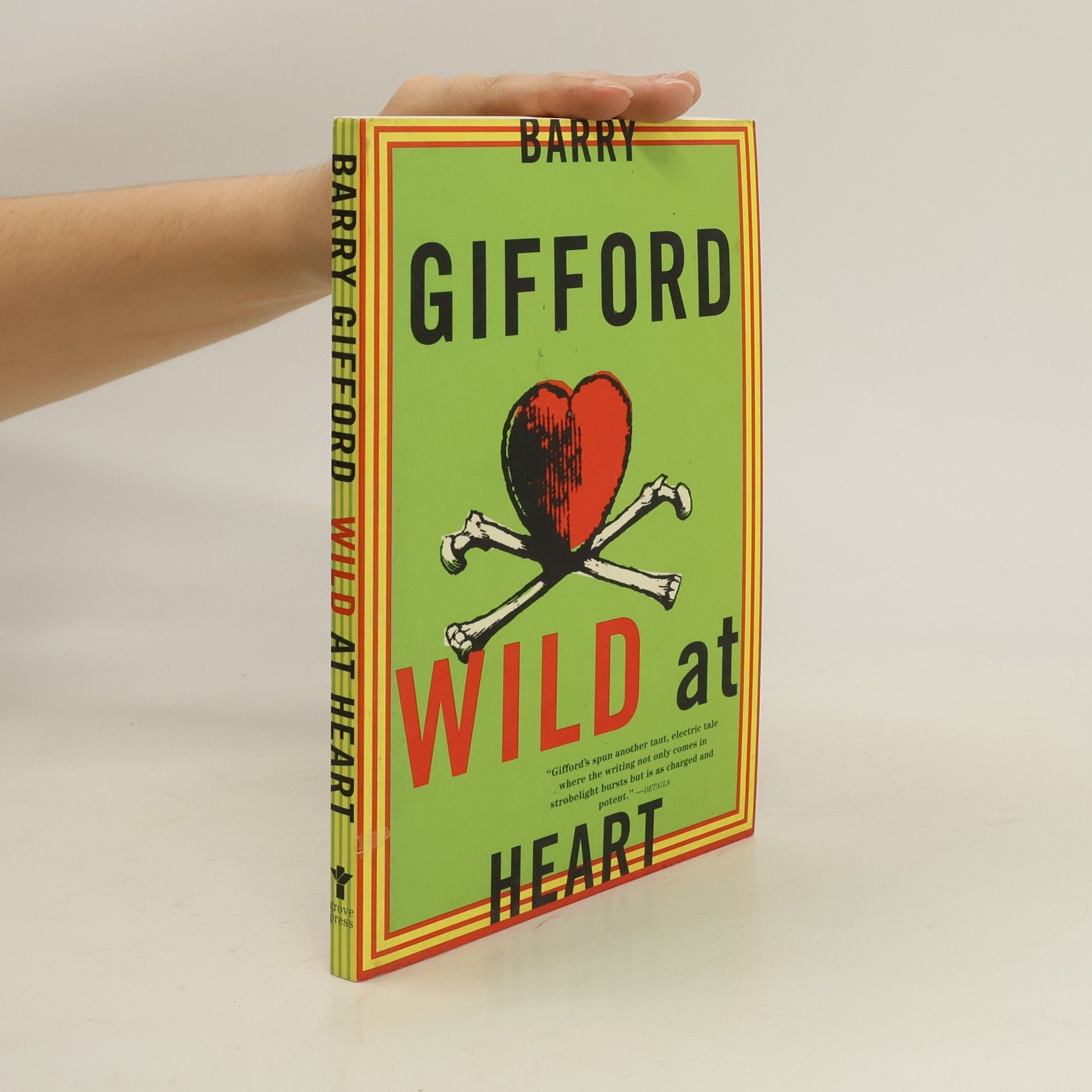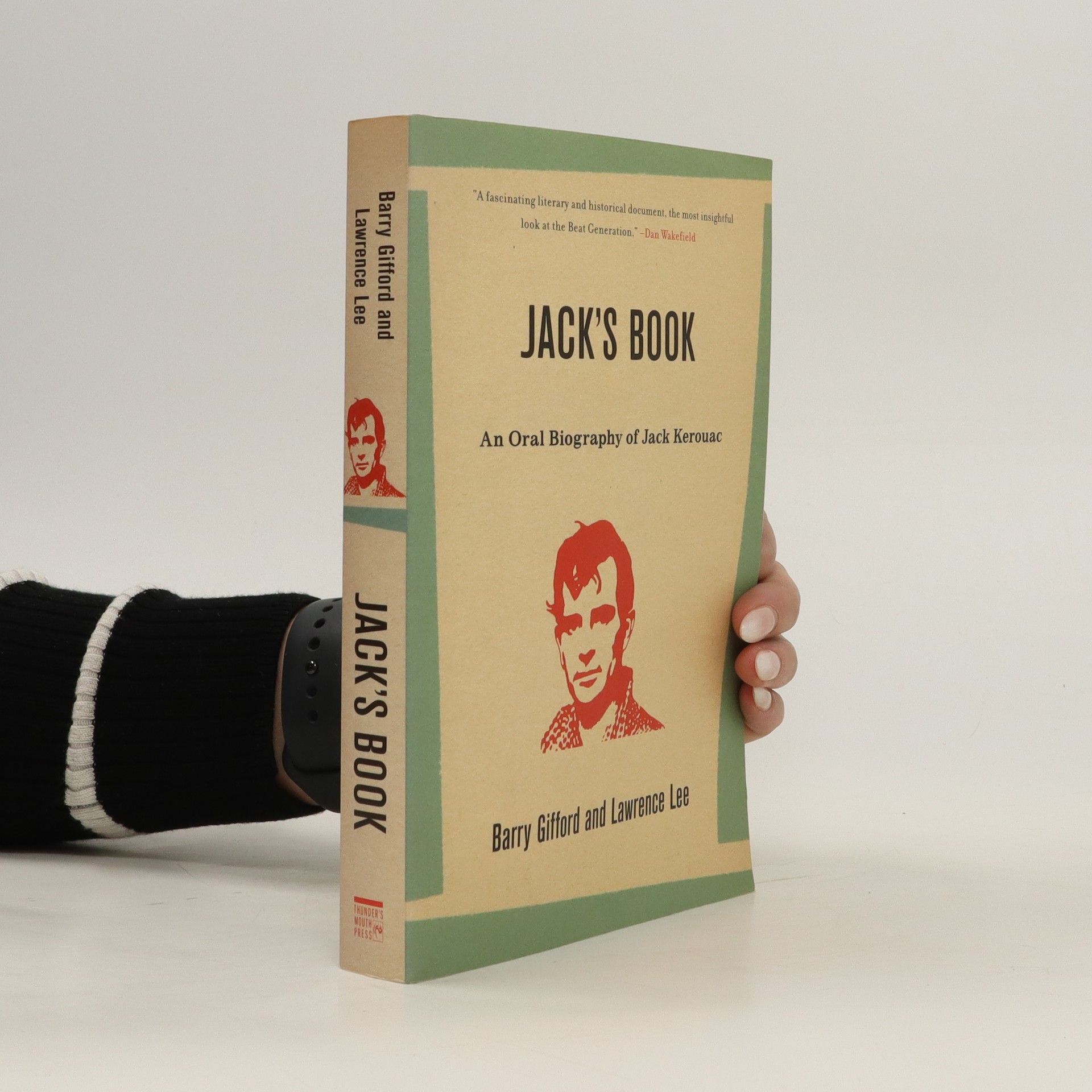Exploring the aftermath of loss, these three plays delve into the complex dynamics of grief within families. "Tricks" examines the psychological depths of two men seeking connection beyond physical intimacy, hinting at fractured identities. "Blackout" portrays a 1930s couple, Danny and Diane, trapped in their sorrow over a child's death, with Diane retreating into delusions. In "Mrs. Kashfi," a young boy encounters a haunting presence while his mother seeks solace through clairvoyance, highlighting the eerie intersections of life and death.
Barry Gifford Book order (chronological)
Barry Gifford is an American author whose work is celebrated for its distinctive blend of American landscapes and literary madness, influenced by film noir and the Beat Generation. His prose is often characterized by a unique, dark humor, exploring the fringes of American life. Gifford is known for his narratives featuring unconventional protagonists on the road, many of which have been adapted into films, highlighting his strong visual storytelling. He also has an extensive body of non-fiction work.







A tribute to the author's mother Kitty, the gritty Chicago landscape of his youth, and the "ghost years, that time in your life you don't know won't never come again." Barry Gifford has been writing the story of America in acclaimed novel after acclaimed novel for the last half-century. Almost all of the stories in Ghost Years takes place in the 1950s, examining the lives of women in that period—the suppression, the lack of opportunities, the dependency on men. Following his story collection, Roy's World, which inspired the documentary directed by Rob Christopher, narrated by Lili Taylor, Matt Dillon and Willem Dafoe, these stories show a childhood in mid-century America filled with innocence, grief, joy and wonder in equal measure.
In Writers, great American storyteller Barry Gifford paints portraits of famous writers caught in imaginary vulnerable moments in their lives. In prose that is funny, grotesque, and a touch brutal, Gifford shows these writers at their most human, which is to say at their worst: they are liars, frauds, lousy lovers, and drunks. This is a world in which Ernest Hemingway drunkenly sets explosive trip wires outside his home in Cuba, Marcel Proust implores the angel of death as a delirious Arthur Rimbaud lies dying in a hospital bed, and Albert Camus converses with a young prostitute while staring at himself in the mirror of a New York City hotel room. In Gifford's house of mirrors, we are offered a unique perspective on this group of literary greats. We see their obsessions loom large, and none more than a shared needling preoccupation with mortality. And yet these stories, which are meant to be performed as plays, are also tender and thoughtful exercises in empathy. Gifford asks: What does it means to devote oneself entirely to art? And as an artist, what defines success and failure?
How Chet Baker Died
- 96 pages
- 4 hours of reading
"The first words in Barry Gifford's new poetry collection say it all--"Here I am wasting time again / writing poems to keep myself company"--doing what he has ever done, surprising his readers in kaleidoscopic prisms of color, turning every breath into a story, and himself into his most colorful character. The mystery in these poems lives just beyond the province of words. In a strange way, Barry Gifford's poems tell a wordless story, freed of the writer's art. "It's dangerous to remember / so much, especially for a writer / The temptation to make sense / of it is always there / where you and I / are no longer." Daily life, family and friends, are much more important here than books. The beauty and elusiveness of women and music are of utmost importance, far more so than literature. As he attests: "I prefer music to poems, words don't live the same way--so, listen.""-- Provided by publisher
"Roy tells it the way he sees it, shuttled between Chicago to Key West and Tampa, Havana and Jackson MS, usually with his mother Kitty, often in the company of lip-sticked women and fast men. Roy is the muse of Gifford's hardboiled style, a precocious child, watching the grown-ups try hard to save themselves, only to screw up again and again. He takes it all in, every waft of perfume and cigar smoke, every missed opportunity to do the right thing. And then there are the good things too. A fishing trip with Uncle Buck, a mother's love, advice from Rudy, Roy's father: "Roy means king. Be the king of your own country. Don't depend on anyone to do your thinking for you." The stories in The Boy Who Ran Away to Sea are together a love letter and a tribute to the childhood experiences that ground a life"-- Provided by publisher
Black Sun Rising / La Corazonada
- 240 pages
- 9 hours of reading
Based on historical events in 1851, this Western noir novella traces the struggle of the first integrated Native American tribe to establish themselves on the North American continent. After escaping the Oklahoma relocation camps they had been placed in following their forced evacuation from Florida, the Seminole Indians banded with fugitive slaves from the American South to fulfill the vision of their leader, Coyote, to establish their land in Mexico's Nacimiento. The Mexican government allowed them initially to settle in Mexico near the Texas-Mexico border, in exchange for guarding nearby villages from bands of raiding Comanches and Apaches. On the Texas side of the border, a romance begins between Teresa, daughter of former Texas Ranger and slavehunter Cass Dupuy, and Sunny, son of the great Seminole chief Osceola. Teresa's father, a violent man, has heard about the fugitive slaves settled on the other side of the border and plans to profit from them. As the story progresses, multiple actors come into play, forming alliances or declaring each other enemy, as the Seminoles struggle to fulfill captain Coyote's corazonada to find their own land
Roy's World
- 720 pages
- 26 hours of reading
A tie-in to the new documentary, Roy's World, directed by Rob Christopher narrated by Lili Taylor, Matt Dillon and Willem Dafoe, these stories comprise one of Barry Gifford's most enduring works, his homage to the gritty Chicago landscape of his youth Barry Gifford has been writing the story of America in acclaimed novel after acclaimed novel for the last half-century. At the same time, he's been writing short stories, his "Roy stories," that show America from a different vantage point, a certain mix of innocence and worldliness. Reminiscent of Mark Twain's Huckleberry Finn and Ernest Hemingway's Nick Adams stories, Gifford's Roy stories amount to the coming-of-age novel he never wrote, and are one of his most important literary achievements--time-pieces that preserve the lost worlds of 1950s Chicago and the American South, the landscape of postwar America seen through the lens of a boy's steady gaze. The twists and tragedies of the adult world seem to float by like curious flotsam, like the show girls from the burlesque house next door to Roy's father's pharmacy who stop by when they need a little help, or Roy's mom and the husbands she weds and then sheds after Roy's Jewish mobster father's early death. Life throws Roy more than the usual curves, but his intelligence and curiosity shape them into something unforeseen, while Roy's complete lack of self-pity allow the stories to seem to tell themselves.
Sailor & Lula Expanded Edition
- 784 pages
- 28 hours of reading
"The Romeo and Juliet of the South" are back in this new edition of the internationally best-selling Sailor and Lula novels, now including for the first time the culminating novel, The Up-Down, by American master Barry Gifford. "Barry Gifford invented his own American vernacular--William Faulkner by way of B-movie film noir, porn paperbacks, and Sun Records rockabilly--to forge the stealth-epic of Sailor & Lula"--Jonathan Lethem Here for the first time in print together are all eight of the books that comprise the saga of Sailor Ripley and Lula Pace Fortune, "the Romeo and Juliet of the South": Wild at Heart, Perdita Durango, Sailor's Holiday, Sultans of Africa, Consuelo's Kiss, Bad Day for the Leopard Man, The Imagination of the Heart, and The Up-Down.
Jack's Book
- 304 pages
- 11 hours of reading
Here, in what has become a classic of its kind since its publication in 1978, is the fascinating story of Jack Kerouac, "King of the Beats" and American literary legend, recorded through the voices of his friends and lovers. Authors Barry Gifford and Lawrence Lee retraced Kerouac's life at home and on the road and talked with the prophets, musicians, poets, socialites, and working people who knew Jack Kerouac. Some are famous like Allen Ginsberg, Gore Vidal, William Burroughs, Gary Snyder, among others; and some are not like Jack's boyhood buddies, his lovers, and his barroom companions. All, however, have contributed to a remarkably vibrant, riveting portrait of a life. We see Jack at Columbia University and on the scene of Greenwich Village; speeding across the tarmac of America with Neal Cassidy ("Dan Moriarty" in Kerouac's classic novel, On the Road); at home with his possessive mother; in California, drinking wine and talking Buddhism; and finally, in Florida, where his life ends tragically at forty-seven years old. Jack's Book, like Kerouac's novels, makes a unique contribution to our understanding of a man and a generation that shaped the dreams and visions of those who followed.
Perdita Durango
- 173 pages
- 7 hours of reading
